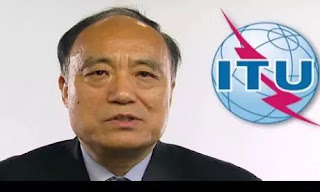Information and communication technologies (ICTs) now form the backbone of today’s digital economy. They also have enormous potential to fast forward progress on the United Nations’ Sustainable Development Goals (SDGs) and improve people’s lives in fundamental ways.
Building the next generation of ICT infrastructure will power the evolution of smart, sustainable cities and communities worldwide. Making modern ICT access more widely available will also foster the local innovation needed to spur domestic economic growth.
As the UN’s specialized agency for ICTs, ITU has a crucial role to play in making sure this critical infrastructure is built in a globally harmonized way that speeds connectivity worldwide – and positions ICTs to accelerate all 17 of the SDGs.
Building Out From SDG 9
For us, it starts with SDG 9, which is a key focus for ITU as we leverage our core competencies in ICT infrastructure to maximize our unique contribution to the UN’s efforts to achieve the SDGs.
ITU’s mission is to connect the world, and with more than 150 years of experience in harmonizing spectrum, international communication technical standards and policies, ITU is well positioned to help build this ICT foundation for modern development.
As demand for data on wireless devices skyrockets worldwide, ITU’s role in brokering the critical international agreements that guide the cooperative use of radiofrequency spectrum is now more vital than ever. In addition, the globally harmonized technical standards we produce help lower the costs of ICT infrastructure deployment, encouraging the significant investments required for improved connectivity worldwide.
While we still have a long way to go – some 3.9 billion people are still unconnected to the Internet – we have made great strides. For instance, ITU’s G. fast technical standard has emerged as an important “bridge” technology, allowing countries across the world to better connect their citizens to high-speed networks at lower cost using existing copper infrastructure. ITU also provided the older xDSL technical standards that still enable over half of all Internet connections in developing countries.
The Importance of Partnerships – SDG 17
With ITU’s broad membership base of government, private sector and academia, ITU will be collaborating and cooperating with many other organisations to ensure the transformative impacts of ICTs are maximised.
The UN Broadband Commission for Sustainable Development, ITU’s Connect 2020, the Alliance for Affordable Internet, the Global e-Sustainability Initiative and the Partnership for Sustainable Development Data are just a few examples of existing collaborations that show SDG 17 in action.
ICTs are widely recognised as the cross-cutting transformative potential for all SDGs.
Scalable Solutions To Speed Progress
Below are examples of ITU and ICT contributions to the other SDGs that will be reviewed at the HLPF:
SDG 1 There are still more than 2 billion “unbanked” people in the world. Access to financial services has proven to be a pivotal step in helping lead people out of poverty, and thanks to digital financial services, many are now participating in the digital economy for the first time. ITU has produced several reports providing guidance on implementing digital financial services.
SDG 2 To feed a growing world population, agriculture is increasingly knowledge-intensive. ITU and FAO are working with countries to set up and implement initiatives to fast forward e-agriculture.
SDG 3 Direct patient interaction, health informatics and telemedicine can all be improved through better connectivity. One small example is the ITU and World Health Organization’s Be He@lthy, Be Mobile initiative.
SDG 5 There are more than 250 million fewer women online than men. To close the digital gender gap ITU Members organizes International Girls in ICT Day, and a partnership with UN Women for Gender Equality in the Digital Age.
SDG 14 Enabled by ITU’s international satellite regulatory framework, satellite observations and monitoring increases scientific knowledge of the oceans and marine life.
The new digital economy, and its increasing reliance on the transformative impact of Big Data, the Internet of Things (IoT) and Artificial Intelligence (AI) is essential to eradicating poverty and promoting sustainable development.
For this reason, ITU will continue to work to connect the unconnected, in partnership with all stakeholders to maximize the impact of ICTs in contributing to the achievement of the SDGs.
Houlin Zhao is the Secretary-General of the International Telecommunications Union (ITU). The article first appeared in ITUNews.


